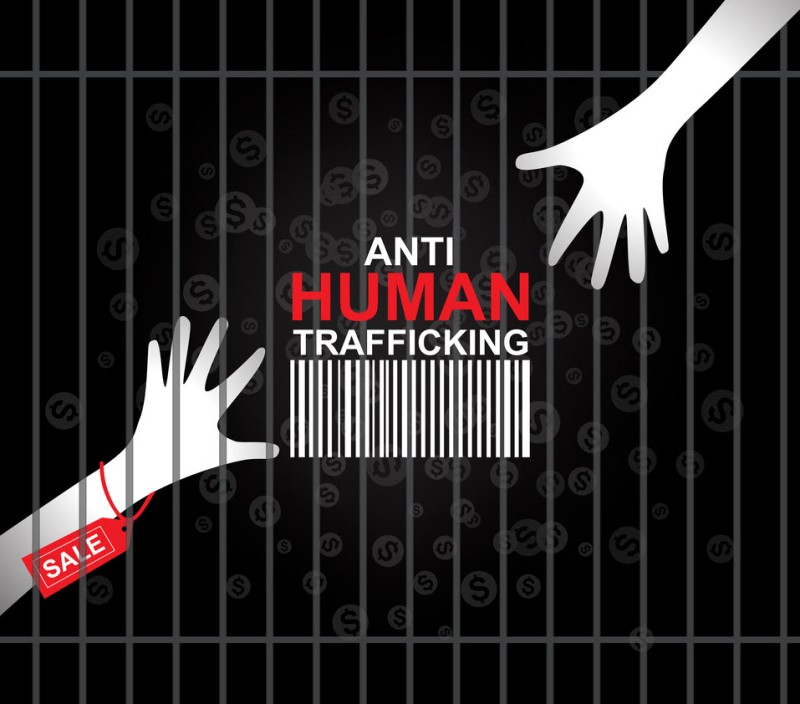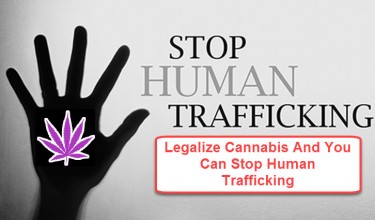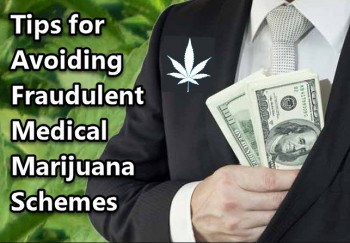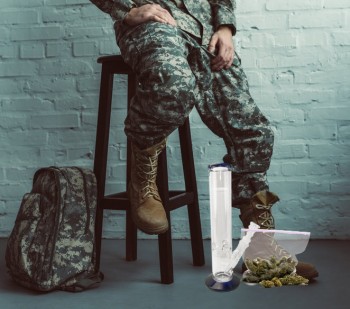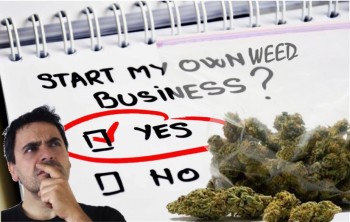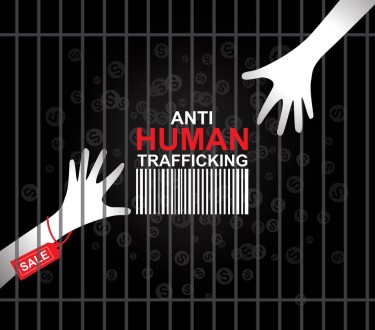
How to Stop Human Trafficking: Legalize Drugs!
The largest illicit market on the planet is not weapons, exotic animals, or even human beings - it's drugs. Since 1971, when the United Nations amended its narcotic charter and essentially declared an international war on drugs, the global drug trade has only grown in size and complexity.
Despite the best efforts of law enforcement agencies worldwide over the past five decades, drugs have become more prevalent, more accessible, and far more dangerous.
From the streets of American cities to remote villages in Afghanistan, the drug trade has left a trail of addiction, violence, and corruption in its wake. It's safe to say that after 75 years of futile efforts, drugs have definitively won the war.
But the illegal drug trade does more than line the pockets of criminals and cartels. It also serves as a shield for one of the most horrific crimes imaginable: human trafficking.
The same shadowy networks that smuggle cocaine and heroin across borders are often deeply intertwined with the traffickers who buy and sell human beings as chattel.
In this article, we're going to explore the number one thing the world can do to stop human trafficking - legalize all drugs.
But we're not talking about a free-for-all where anyone can buy anything at any time. Instead, we'll lay out a nuanced approach to legalization and regulation designed to reduce the harms of drug abuse while focusing law enforcement resources on the fight against human trafficking.
By removing the profits generated by the illegal drug trade, we can strip away the financial incentives that fuel trafficking networks. And by redirecting policing efforts towards identifying and protecting victims rather than endlessly chasing drug dealers, we can make a real dent in this abhorrent practice.
It won't be easy, and it won't happen overnight.
But if we're serious about ending human trafficking, we need to start by rethinking the failed war on drugs. The evidence is clear - prohibition has only made the problem worse. It's time for a new approach, one grounded in public health, human rights, and common sense. Let's dive in.
Drugs by the Numbers: The Staggering Scope of the Illegal Trade
Since the adoption of the Single Convention on Narcotic Drugs in 1961 and the subsequent declaration of the war on drugs in 1971, the illegal drug trade has exploded in size and reach. What was once a relatively small-scale, localized problem has morphed into a global behemoth with tentacles in every corner of the planet.
According to estimates from the United Nations Office on Drugs and Crime (UNODC), the global drug trade is now worth between $426 and $652 billion annually. That's more than the GDP of most countries and represents a staggering increase from the pre-1961 era when the trade was a fraction of its current size.
But it's not just the scale of the trade that has changed - it's also the nature of the drugs themselves. In response to prohibition efforts, drug producers and traffickers have become incredibly innovative, constantly developing new synthetic substances to evade detection and skirt the law.
One prime example is "Spice," a synthetic cannabinoid that mimics the effects of marijuana but is infinitely more dangerous. Because Spice is unregulated and its chemical composition is constantly changing, users have no way of knowing what they're ingesting. The result has been a wave of overdoses and deaths that have devastated communities around the world.
Meanwhile, the financial institutions that are supposed to be safeguarding the global economy have become complicit in the illegal drug trade. Banks like HSBC have been caught repeatedly laundering money for drug cartels, yet they've only been slapped with fines rather than facing criminal charges.
In 2012, HSBC admitted to laundering nearly $900 million for the notorious Sinaloa Cartel in Mexico, yet no executives went to jail. Instead, the bank paid a fine of $1.9 billion - a mere slap on the wrist compared to the profits it had reaped from its illicit activities.
This double standard is a stark reminder of the inherent inequities of the war on drugs. While low-level dealers and users face harsh prison sentences, the wealthy and well-connected can profit from the trade with impunity.
Perhaps most tragically, drug prohibition has created a black market where profits are prioritized over safety. With no regulation or quality control, drug producers often cut their products with dangerous adulterants or increase potency to maximize profits. The result is a staggering number of drug-related deaths that could have been prevented with a more rational approach.
According to the CDC, over 93,000 Americans died from drug overdoses in 2020 alone - a record high. Many of those deaths were caused by fentanyl, a synthetic opioid that has become increasingly common in the illegal drug supply.
The numbers don't lie - the war on drugs has been an abject failure. If the goal was to reduce drug use and combat criminal organizations, then by every empirical measure, it has fallen short. Continuing to support a failed system is not only misguided - it's actively causing harm to individuals and communities around the world. It's time for a new approach.
Human Trafficking by the Numbers: The Shocking Reality
While the illegal drug trade may grab more headlines, human trafficking is a shockingly prevalent and profitable criminal enterprise. In fact, it's the second largest illicit market in the world, generating an estimated $150 billion in annual profits for traffickers.
The scale of human trafficking is staggering. According to the International Labor Organization (ILO), there are over 40 million victims of human trafficking worldwide, with women and girls accounting for 75% of those trafficked. Perhaps most disturbingly, one in four victims of trafficking are children.
These victims are bought, sold, and exploited for a variety of purposes, including forced labor, domestic servitude, and commercial sexual exploitation. The primary motivations for traffickers are greed and the desire for power and control over others but mostly supply and demand.
While trafficking occurs in virtually every country, some regions are particularly prone to this horrific practice. Asia and the Pacific region account for the largest number of victims, with 15.4 million people trafficked in that region alone. Africa and Europe also have high rates of trafficking, with millions of victims in each region.
So who are the buyers driving this brutal trade? While there is no single profile, research suggests that many purchasers of trafficked persons are individuals with wealth and power. From corrupt politicians to wealthy businessmen to high-ranking officials, the demand for trafficked persons often comes from the upper echelons of society.
The infamous case of Jeffrey Epstein is a prime example. Epstein, a wealthy financier with connections to powerful figures in politics and business, was accused of trafficking and sexually abusing dozens of underage girls. He allegedly used his private island in the Caribbean as a base for his trafficking operations, flying in girls on his private jet to be exploited by him and his associates.
The Epstein case raises disturbing questions about the priorities of our justice system. While law enforcement agencies pour billions of dollars into fighting the war on drugs, how much attention and resources are being devoted to combating human trafficking?
The answer is that U.S. government spends roughly 64 times more on fighting drug trafficking than it does on combating human trafficking. ($35.6 billion in 2021 for drug trafficking vs $560 for human trafficking)
Could it be that the focus on drugs serves as a convenient distraction from the uncomfortable reality that some of the most powerful people in our society are complicit in the buying and selling of human beings? Is the war on drugs a way to protect the interests of the wealthy and influential while ignoring the suffering of trafficking victims?
These are not easy questions to answer, but they must be confronted if we are serious about ending human trafficking. It's not enough to pay lip service to the issue or to prosecute the low-level traffickers who are often victims themselves. We must be willing to hold the buyers and enablers of trafficking accountable, no matter how powerful they may be.
The numbers don't lie - human trafficking is a massive and growing problem that demands our attention and action. We cannot continue to turn a blind eye to the suffering of millions of victims around the world. It's time to prioritize the fight against trafficking and to hold those who profit from this heinous crime accountable, no matter who they are.
How to Legalize Drugs Based on Science and Fight Human Trafficking
The legalization of drugs is a complex and controversial issue that requires a nuanced, evidence-based approach. Simply declaring all drugs legal without any restrictions or regulations would be irresponsible and potentially dangerous. Instead, we must look to science and best practices to guide our policy decisions.
First and foremost, it's important to recognize that not all drugs are created equal. Some substances, like fentanyl, are highly addictive and can be lethal in very small doses. These drugs should not be readily available to the general public and should be tightly controlled.
However, that doesn't mean we should continue to criminalize addiction. Instead, we could follow the model pioneered by Switzerland in the 1990s, which provided heroin to addicts for free in designated clinics. This approach may seem counterintuitive, but it has proven to be remarkably effective in reducing the harms associated with drug use.
By providing a safe, regulated supply of heroin to addicts, the Swiss government was able to reduce disease transmission, overdose deaths, and crime associated with the illegal drug trade. Addicts were able to access the drug they needed without resorting to desperate measures, and many were eventually able to wean themselves off heroin entirely.
For other drugs like cannabis, LSD, and psilocybin, the risks of addiction and overdose are much lower. While these substances can still be abused, the vast majority of users do not develop problematic use patterns or experience significant harms.
In these cases, legalization and regulation may be the most sensible approach. By allowing the sale of these drugs to adults in licensed dispensaries, we can reduce the harms associated with the illegal market, generate tax revenue for prevention and treatment programs, and free up law enforcement resources to focus on more serious crimes.
Of course, legalization is not a panacea, and there will undoubtedly be challenges and unintended consequences along the way. But the alternative - continuing to pour billions of dollars into a failed war on drugs while neglecting the scourge of human trafficking - is simply unacceptable.
Consider this: the United States currently spends around $35 billion per year on drug interdiction and enforcement efforts, while allocating just $560 million to combat human trafficking. That means we spend over 60 times more on fighting the drug trade than we do on fighting the buying and selling of human beings.
By legalizing and regulating drugs, we could redirect those resources towards ending human trafficking and supporting its victims. The profits generated from the legal drug trade could be used to fund robust prevention, treatment, and recovery programs, while law enforcement could focus on dismantling trafficking networks and bringing perpetrators to justice.
It's time to acknowledge that our current approach to drugs has failed by every metric. Despite decades of aggressive enforcement and trillions of dollars spent, drugs are more available, more potent, and more dangerous than ever before. Meanwhile, human traffickers operate with near impunity, exploiting the most vulnerable members of our society for profit.
We need a new approach, one that is grounded in science, compassion, and human rights. By legalizing drugs and focusing our resources on ending human trafficking, we can reduce the harms associated with both issues and build a more just and equitable society for all.
It won't be easy, and there will undoubtedly be setbacks along the way. But the alternative - continuing down the path of prohibition and neglect - is simply not an option. We owe it to the victims of trafficking and addiction to do better, and to create a world where every person can live with dignity and freedom from exploitation.
